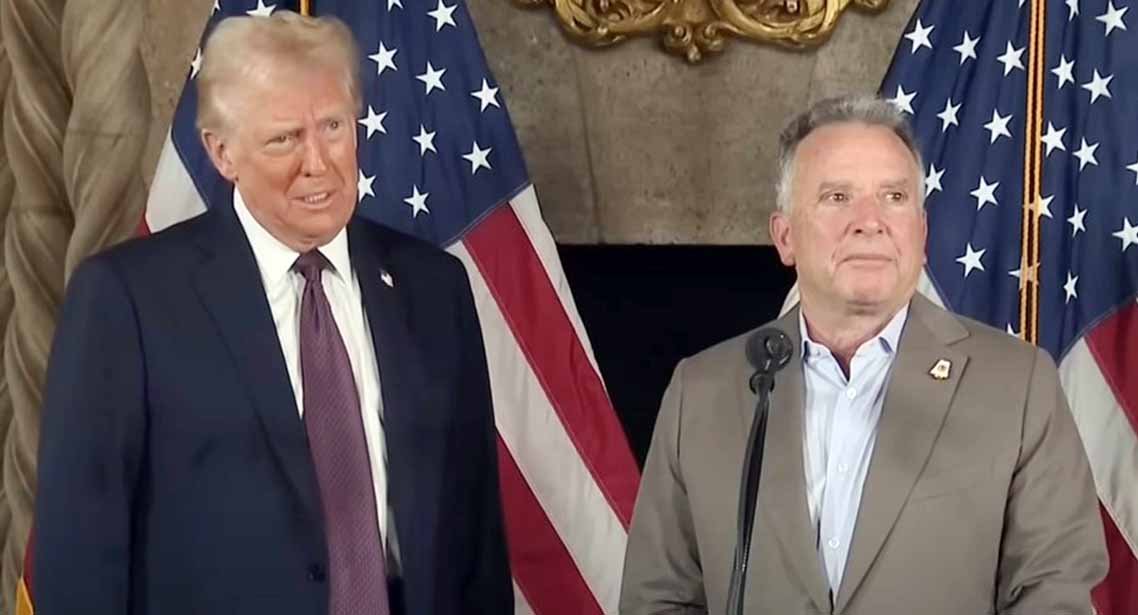President-elect Donald Trump has sent a severe ultimatum to Hamas demanding the release of 101 hostages, including seven Americans, by January 20, 2025, as the New York Post. Declaring, “all hell will break out,” he cautioned that neglect of compliance would have dire consequences. According to a Reuters analysis, Hamas is uncompromising and any release of hostages depends on Israel stopping combat operations and pulling its troops out of Gaza.
The Humanitarian Crisis in Gaza
Now approaching its sixteenth month, the continuous Israel-Hamas conflict has sent Gaza into a humanitarian disaster. According to the Associated Press, over 46,000 Palestinians have killed and over 109,000 have been injured. Women and children make up a major share of the casualties. About seventy percent of Gaza’s population has been displaced by the bombardment; they are now living in cramped camps with limited resources, little access to clean water, and diminishing medical supplies.
Hospitals are inundated with injured civilians while straining to operate despite power outages and shortages of crucial equipment. According to the World Health Organization, healthcare facilities in Gaza have reached a breaking point, with crucial supplies running short in the face of incessant bombardment.
Reactions to Trump’s Threats
Reactions to Trump’s audacious declaration have been conflicting everywhere. For residents in Gaza, his words have increased to their pain. “It is already hell here,” said Amina, a mother of three from Gaza City. “We are suffering daily. Bombs fall, children scream, and now there is this new threat. We just want peace.”
Political commentators say Trump’s ultimatum might aggravate relations. According to a New Yorker study, his language has created concerns among allies in the Middle East, who believe his approach would push Hamas into a more entrenched stance.
Israeli Prime Minister Benjamin Netanyahu has applauded Trump’s stance, declaring, “We stand united with the U.S. against terrorism.” However, others fear that this method can backfire by aggravating the sensitive hostage discussions now ongoing.
Hostage Negotiations: The Stalemate
Mediation attempts headed by the U.S., Qatar, and Egypt have yet to achieve a resolution. A report from Al Jazeera indicates that Hamas has maintained its demand for a complete cease of Israel’s military campaign in Gaza before agreeing to release any hostages. Israel, on the other hand, maintains that all hostages must be liberated unconditionally and Hamas’ military capabilities eliminated.
These opposing demands have led to a diplomatic standstill, with negotiators expressing fear that time is running out. The impending transfer to Trump’s government has further complicated matters, as negotiators anticipate shifts in U.S. policy and strategy.
The Families’ Struggle
The emotional toll on captive families cannot be understated. Among the 101 hostages are women, children, and the elderly. Relatives of the seven American hostages intend to attend Trump’s inauguration to emphasize their predicament. “Every day is a nightmare,” said Sarah Thompson, whose brother is among those captured. “We live in constant fear for their safety. We hope President Trump would prioritize their safe return.”
According to CNN, relatives from Israel and overseas have mobilized to advocate for their loved ones. They’ve organized vigils, marches, and internet campaigns, demanding governments to act decisively to secure the hostages’ freedom.
Broader Implications of the Crisis
The repercussions of this impasse reach far beyond Gaza. Humanitarian organizations warn that Gaza’s collapse could destabilize the region. A UN research suggests that food insecurity, lack of clean water, and medical shortages have reached crisis levels, with more than 80% of the population depending on international aid.
On the global scene, Trump’s approach signifies a probable shift in U.S. foreign policy. His forceful language might reshape U.S.-Middle East relations, with allies looking closely to see how he handles the crisis.
International Responses
International reactions have been polarized. While countries like the UK and Germany support efforts to liberate the hostages, they have advocated for moderation. A Reuters story says German Chancellor Olaf Scholz: “The world must work collectively to bring peace to Gaza while ensuring justice for those held captive.”
Conversely, several governments have questioned the lack of focus on the humanitarian toll. Turkish President Recep Tayyip Erdoğan criticized the escalating bloodshed, urging for an early ceasefire to avert future civilian casualties.
What Lies Ahead?
As the January 20 deadline draws, the world watches nervously. Can diplomatic attempts bridge the gap between Israel and Hamas? Will Trump’s strong approach deliver results, or will it compound the already bad situation? For the people of Gaza, the future remains uncertain, with hope for peace becoming increasingly remote.
Sources:
- New York Post: Trump warns Hamas ‘all hell will break out’
- Reuters: Hamas holds firm on conditions for hostage deal
- Associated Press: Gaza humanitarian crisis worsens
- The Jerusalem Post: American hostage families to attend inauguration
- The New Yorker: Trump’s Middle East policy analysis
- CNN: Hostage families speak out
- Al Jazeera: Ceasefire talks remain deadlocked
- World Health Organization: Healthcare collapse in Gaza
- UN Humanitarian Report: Crisis in Gaza
- Voice of America: Trump: All hell will break out

